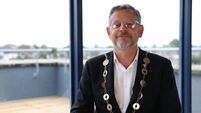That ‘I must be adopted’ belief is more widespread than I thought
Which, in turn, drew a chorus of “me, too,” from the rest. He looked relieved to find he had not been alone in this experience.
What was startling was the almost general distribution of the “I must be adopted” belief. It wasn’t just that some of my colleagues had at some stage imagined that they might not be the natural offspring of their parents. It was that the overwhelming majority had gone through this process. For different reasons.
One of them had two older brothers, who — in the happy clappy way older brothers have — decided it would be a great joke altogether if they planted the idea in the younger kid’s head that he, the afterthought child in the sequence, was adopted. He believed them. Of course he believed them. Why would they lie to him about such an issue? Inevitably, he was extremely upset by the information, and showed it.
This unexpected payoff stimulated the two older lads into still greater creativity, and they confected an elaborate saga of orphanages and arrivals, at the same time swearing him to secrecy because, they said, their parents wanted to keep the truth of his familial status private. God love him, he stayed silent for a long time, the issue festering within him. Eventually, he confided in an aunt who promptly tore strips off the two older lads while leaving him in no doubt that he was their natural sibling. Whether he liked it or not, and if I was him, reflecting on what they’d done to him, I’d have preferred to know I wasn’t their blood sibling.
Another of the guys in the office confessed that, while he had, unaided, developed the conviction that he had been adopted, he had approached the verification in a forensic way. He would find an occasion to ask his father about the circumstances of his birth. Then he would go off and subtly check the details with his mother. The problem was that his father is not a talkative man, so all he ever got was monosyllabic answers speedily followed by an instruction to do the dishes or go play in the traffic. His mother, on the other hand, is extremely talkative, but not that consistent in her recollections.
“She gave me about six different versions of how I was born,” he said bitterly. “I now know she was there at the time, but she doesn’t seem to have been paying much attention.”
We did point out to him that giving birth is not as routine as picking up a cup of coffee, and that memory is fungible, but he was hanging on to his sense of grievance, recalling with remembered rage the fact that it took him nearly two years to get sufficient evidence to confirm his parentage. This was, as he recalls, from when he was four to when he was six.
“I wouldn’t have minded being adopted,” he said. “I just wanted to know. For sure.”
Contrariwise, some of the others actively wanted to be adopted. They thought they were mis-matched with their family.
In some cases, they thought they were so infinitely superior to their families that it seemed inescapable that they’d come from much richer, cleverer couples and that if they could prove it, they could do a Dick Whittington. Literally. One of them remembers hoarding a broken sweeping-brush handle and an old headscarf that had belonged to his mother, as the beginning of escape equipment.
“For some reason, I figured that a bundle hanging from the end of a stick over my shoulder was essential to my leaving home and finding my real parents.”
JUST how widespread is this childhood fear is difficult to gauge, but it seems to be a lot more prevalent than might be expected. Nor do natural parents appear to understand how visceral is the doubt. Most of them, asked by their child if they’d adopted him or her, were so dismissive as to seem evasive.
“Would you not be bothering me?” was the repeated response of one mother, while another, irritated by repeated questions, eventually snapped something to the effect that if she’d had a choice, would she have picked him? These days, adoption is always announced. In the past, that wasn’t always the case. Yes, there were high-profile exceptions. Gay Byrne, for example, announced the adoption by himself and “Miss Watkins” of their first daughter at the end of a Late Late Show. “Her name is Crona,” he told the viewers. “Not Corona. She’s not a cigar. Crona.”
Sometimes, however, for whatever reason, adoptive parents never let on to their children that they had been adopted. I recently encountered one case of a young man who, in his early teens, overheard a row between his parents. His mother was accusing his father of infidelity. In the middle of the row, reference was made to the fact that the son was adopted. To this day, they’ve never officially told him of his adoption, and he’s never asked. He has no desire to find his natural mother and is quite happy with the arrangement.
I seem to be out of step on this one. I never for a moment assumed that I was adopted, even though my older sister didn’t look, sound or act like we came from the same gene pool. She was a brilliant mathematician and an all-round academic powerhouse. I scraped by and was hated by the nuns in school as a substandard successor to her. She had a mighty social life and a rake of boyfriends. I was a recluse and as popular as the plague. She could jive. I never got beyond a waltz and even then had to say “One, two three” under my breath to prevent me crippling my partner. When I had a partner. Which was almost never.
The repeated accounts of how repellent I was as a newborn may have helped prevent me doubting where I came from. My mother, unprompted, would tell anyone that when I was brought home from the hospital, I had thick black hair down my back and screamed so committedly and so constantly that the neighbours complained and she thought might go and report her to the gardaí for torturing me. Thick black hair down the back and screaming: my early self image is of a bear cub with an ambulance siren fitted to it. (My sister, to give her her due, always ended the bear cub saga by mildly pointing out that the black hair fell off at six months and that at the same time I turned quite amiable.) But the questions remain. Whence comes this apparently widespread sense of not belonging in one’s own family? And why do male siblings take such joy in its propagation?















